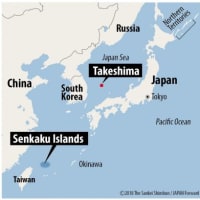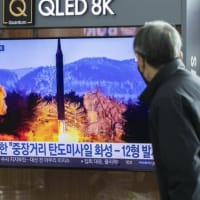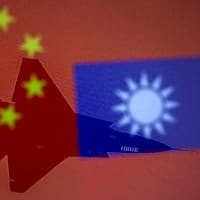
Welcome to Issues in Japan.
The Fumio Kishida administration is preparing a bill to promote economic security in order to tackle economic security, which views economic activities and the development of advanced technologies as an integral part of military and diplomatic affairs.
This is the most important bill to be passed in the current Diet session.
Japan needs to prepare for the increasingly severe security environment by reducing the risk of dependence on foreign countries for goods such as semiconductors, and by cultivating and preserving technologies that can be used for military purposes.
The legal framework is indispensable for this purpose.
In particular, Japan should keep in mind China's unjustified intervention in the economy in pursuit of hegemony.
In order to prevent Japan's security and economic stability from being threatened by the behavior of a neighboring country, a highly effective system should be established as soon as possible.
There are dangers in depending on foreign countries.
The government is planning to formulate a bill based on the recommendations made by the expert panel on economic security legislation on February 1st, and to make a cabinet decision within the month.
In his recent policy speech, Prime Minister Kishida said that economic security is " an urgent issue. This recognition is correct.
With the advance of globalization, many Japanese companies have established supply chains that span multiple countries.
If a bottleneck arises, it could have a far-reaching impact on the economy and people's lives.
It is still fresh in our minds that in the early days of the new coronavirus epidemic, the procurement of masks, which depended on China, was hampered.
The same is true for semiconductors, for which two-thirds of demand is dependent on imports, and for rare earths used in high-tech equipment.
Excessive dependence on China and other countries that pose a security threat is dangerous.
It is also important not to overlook the expansion of technological areas that can be used for military purposes, such as artificial intelligence (AI) and quantum technology.
For example, if quantum computers, which companies from various countries are working hard to develop, are put to practical use, existing codes could be broken at every turn, exposing national secrets.
The development of quantum cryptography communication technology to prevent this from happening is also directly related to national security.
The U.S., as well as its allies in Europe, are stepping up their efforts for economic security.
It is only natural that Japan should also hasten the establishment of laws.
The expert panel made four recommendations:
(1) strengthening the supply chain to ensure a stable supply of critical goods,
(2) pre-screening key infrastructure,
(3) cooperation between the public and private sectors in advanced technology, and
(4) making patents undisclosed.
The common thread is the government's increased involvement in the economic activities of the private sector.
It is typical for key infrastructure businesses, such as energy, telecommunications, and finance, to pre-screen their equipment before installing it in order to prepare for cyber attacks.
The same can be said for a system that allows the government to keep secret sensitive technologies invented by the private sector after the government compensates for losses.
Of course, we should avoid unnecessarily interfering with business activities, and we cannot blindly expand the scope of regulations.
However, there is no point in limiting the scope if the effectiveness of the regulation is impaired.
It would be better to examine this point and work out the details of the bill.

Share awareness in the public and private sectors.
There may be some concern in the industrial world about tighter regulations, but it is important to understand that we are not in an international situation where business can be conducted solely on the basis of economic rationality.
What is important is for the public and private sectors to share a common understanding of the need for economic security.
In particular, the perspective of economic security is indispensable when considering economic relations with China, which has a policy of military-civilian integration.
Japan and China are deeply connected economically, but we should be very wary of the risks posed by absolutism under a one-party dictatorship.
There are deep-rooted concerns in the international community about China's theft of advanced technology.
Political pressure on other countries through economic means is also alarming.
In January, for example, the European Union filed a lawsuit against China, claiming that China's trade restrictions on Lithuania violate the World Trade Organization (WTO) agreement.
Lithuania claims that it has come under pressure from China after accepting the establishment of a representative office under the name of "Taiwan.”
We must be fully prepared for these developments.
This is not to follow the U.S. in its confrontation with China.
We should recall the case of China's stalling of rare earth exports to Japan after the 2010 collision of Chinese fishing boats off the Senkaku Islands.
Japan must use its own judgment to properly deal with economic security.
Naturally, Japan must remain vigilant not only with regard to China but also with regard to Russia and other authoritarian countries.
In some cases, the involvement of the Russian military is suspected in the cyber-attacks that frequently occur in various countries.
The question now is how countries that share values such as freedom and democracy can cooperate in economic security.
Japan is expected to take responsibility and action to achieve this.
That’s all for now. Thank you for your interest.



















